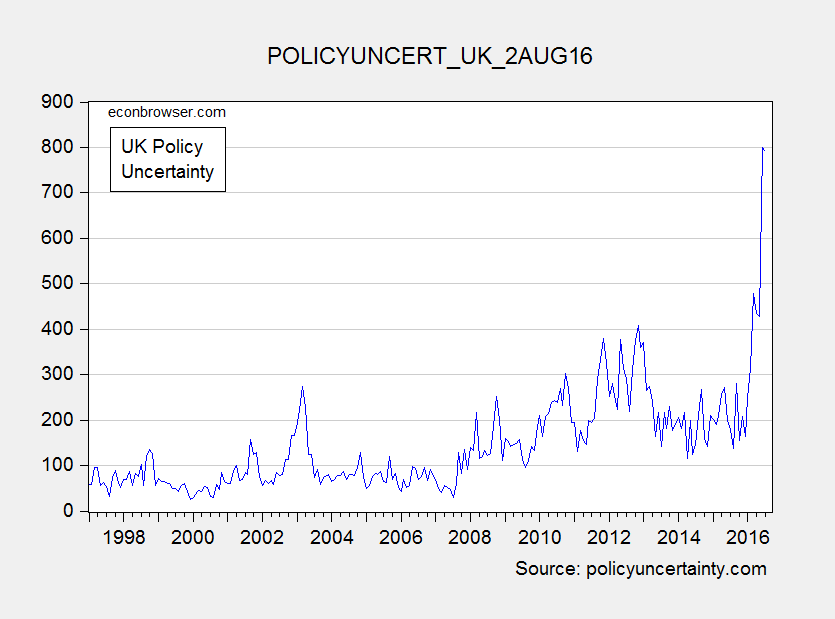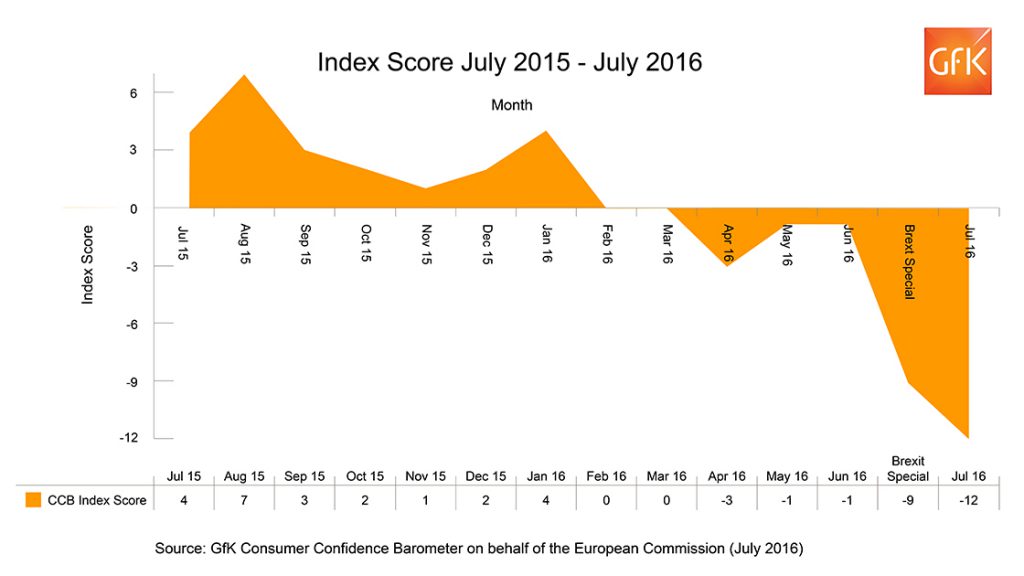From GkF on Friday:
GfK’s long-running monthly Consumer Confidence Index dropped 11 points in July (since the June interviews conducted before the Referendum) from -1 to -12. The survey dates back to 1974 and July sees the sharpest month-by-month drop for more than 26 years (March 1990). This is also a further 3-point drop from the -9 recorded by the Brexit Special in early July. All five measures used to calculate the Index saw decreases this month.
Update, 8/2 1:45am Pacific: And here is measured policy uncertainty in the UK.

Figure 1: UK Policy Uncertainty. Source: policyuncertainty.com accessed 8/2.

Perhaps, the 48%, who voted against Brexit, are running around in circles with their hands in the air expecting the end of the world, like Mel Brooks in that movie 🙂
Perhaps the 52% who voted for Brexit are realizing that they won’t be able to sell everything they want to the rest of Europe as easily as they’ve been able to do under the EU.
Perhaps the 52% who voted for Brexit are realizing that UK researchers are not able to collaborate with their colleague elsewhere in the EU as they have in the past.
Perhaps the 52% who voted for Brexit are looking at their leaders who promised unicorns and ice cream for everyone if Brexit passes before the vote but have backtracked on these promises after the vote are less than happy at being lied to.
After actually being a member of the E.U., the British became more dissatisfied.
WIkipedia
“Those who favoured a British withdrawal from the European Union argued that the EU has a democratic deficit and that being a member undermined national sovereignty…that it would allow the UK to better control immigration, thus reducing pressure on public services, housing and jobs; save billions of pounds in EU membership fees; allow the UK to make its own trade deals; and free the UK from EU regulations and bureaucracy that they saw as needless and costly.”